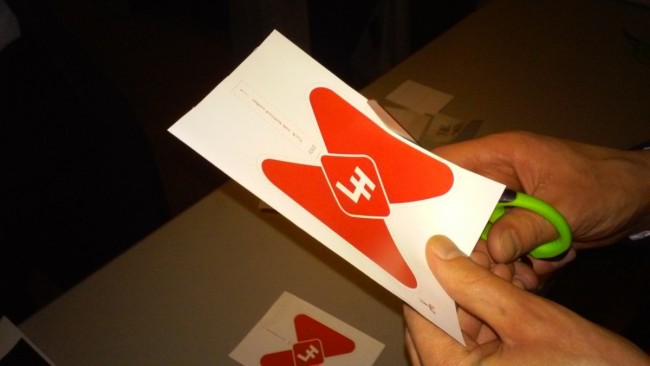Legal Hackers [lēɡəl ˈha-kərz], a movement.
- One who uses technology to improve law.
- One who uses law to improve technology.
That’s more or less how Jameson Dempsey, the cofounder of DC Legal Hackers, explained the concept at the first Le Hackie Awards last Wednesday evening inside The Loft at 600F.
Here’s how it all started: Dempsey met the father of Legal Hackers, Phil Weiss, at the Brooklyn Law Incubator & Policy Clinic just when the SOPA/PIPA debates were swirling.
“This thing called SOPA was getting into Congress,” explained Weiss. That in itself was baffling to him: The bill should not have gotten that far without public input, he said.
Now, Legal Hackers has grown into a full-fledged movement, dedicated to discussing legal issues spilling into the tech world, like copyright, net neutrality and Bitcoin, but also the utility of tech in the legal and legislative systems.
There are now branches in Los Angeles, Stockholm, Pennsylvania, North Carolina, Miami and Boston, and similar groups throughout the globe.
The D.C. arm was launched in September 2013 by Dempsey and Rebecca Williams, and is now a few people shy of 500 members. Its success, Dempsey suggested, might have had to do with their June #dronebbq event. Use your imagination.

Without further ado, though, here’s a list of the winners (who won 3D-printed bowtie-shaped prizes that looked a bit like these paper ones attendees were invited to wear):
- Company of the year: FastCase, a D.C.-based legal research tool that was rated the most popular legal app by the American Bar Association.
- Organization or agency of the year: Free Law Founders, a collaborative of open government groups.
- Top 10 legal hacks:
- Capital Bells
- Coding for Lawyers
- congress-edits
- Contact-Congress (because yes, we need a hack to email our Representatives, apparently)
- Patent Board Ferret
- Free Law Project – Oral Arguments
- Legal Citation Hackathon
- Oversight.io
- SCOTUS Mapper
- SCOTUS Servo
- Legal Hacker of the year: David Zvenyach
Zvenyach is not just the General Counsel for the D.C. Council, where he promoted transparency after deciding, “I want to open this sh** up;” he also wrote up SCOTUS Servo, an app that spots Supreme Court document changes, in a jiffy. (“We didn’t need a committee, we needed like, 70 lines of code,” he said.)
Meanwhile, he is working on a book about “coding for lawyers,” inspired by the Github account of the same name that he runs.
But, as he stepped up to accept the award, Zvenyach, wearing a grey hoodie over his checkered shirt and tie, said simply: “The D.C. hacking community has made me a better lawyer.”







